Introduction:
Have you ever wanted to develop a game of your own? Becoming the next big game company? Making millions upon millions of dollars? While in real life that would be very hard to pull off, you can do it virtually right now in Game Dev Studio! Let's dive into what this game is all about!
Game Modes:
From the Main Menu, you have the option to start a new game and you are presented with many game modes. Let's briefly go over all of them.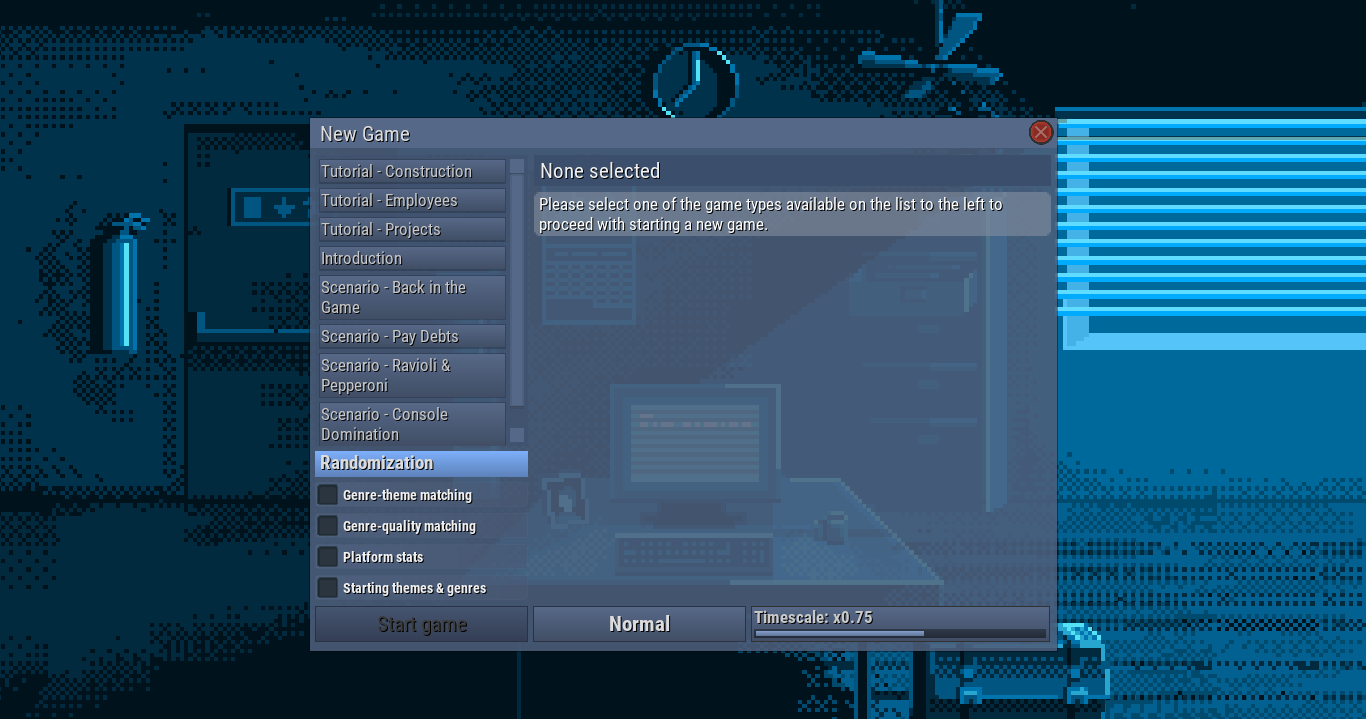
- Tutorial - Construction: Teaches you how to build offices for your employees to work in, including furniture.
- Tutorial - Employees: Starts after Construction Tutorial; explains how employees work, including how to hire them and different types of employees you'll need for your company.
- Tutorial - Projects: Starts after Employees Tutorial; shows you how to actually develop a game in Game Dev Studio
- Introduction: First real mode of the game, you need to follow the Investor's directions to complete this mode.
- Back In The Game: Within 20 years, you must hire at least 60 Employees and gain 60,000 reputation points (a factor in Game Dev Studio)
- Pay Debts: Within 20 years, you have to pay a debt of $50 million.
- Ravioli & Pepperoni: You used to work for a major game company, but something went wrong and now you're starting your own company. To win, you have to get revenge on the major game company.
- Console Domination: Within 30 years, you must make $200 million. This game-mode focuses on a part of the game where you can create your own console.
- Freeplay: No objectives, with the ability to choose your map, starting year, and starting funds.
Character Creator:
Before starting your game, you have the ability to create a custom character to actually use in the game. There are 4 main aspects, the appearance, attributes, traits, and interests.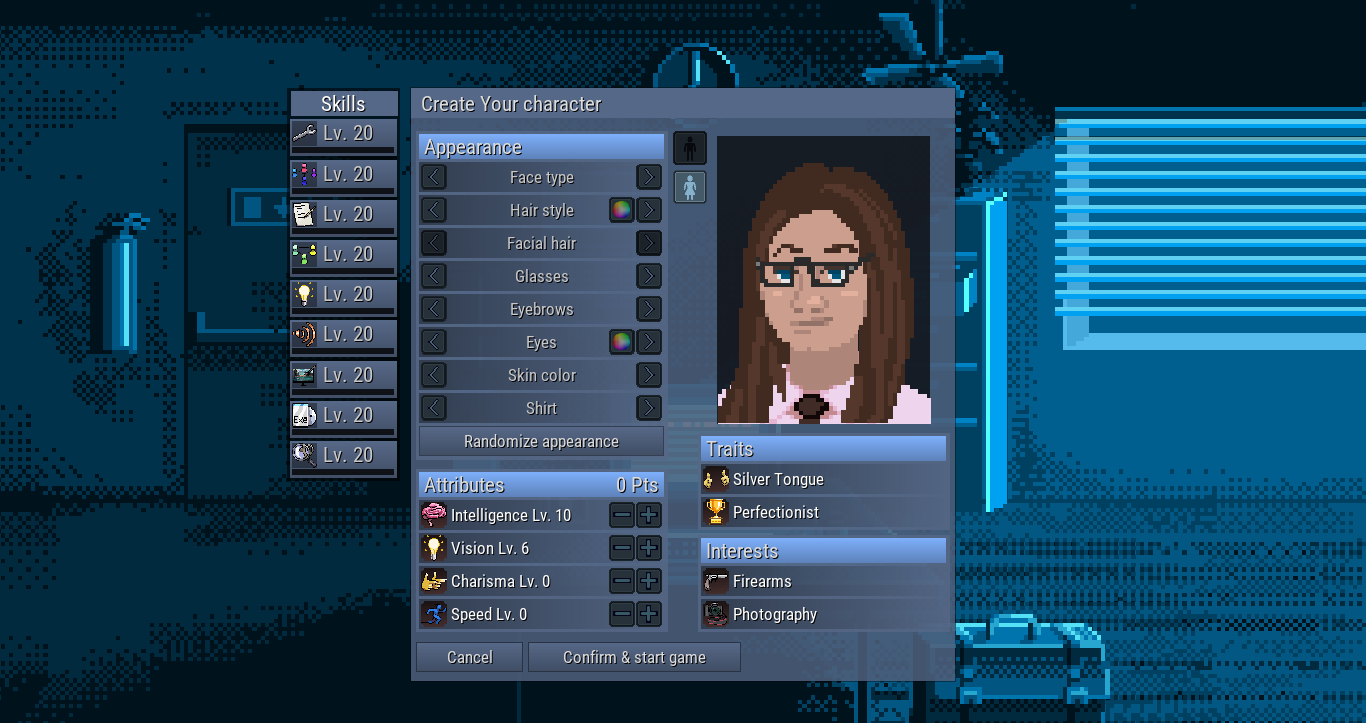
Even though you won't actually see your character's appearance much in-game, you still have the ability to control what it looks like from face type, hair style and color, the looks of the eyebrows, to eye looks and color. If you don't really care what your character looks like, you can always click the button "Randomize Appearance" to make the character’s looks random.
There are 4 major attributes that affect your speed in certain aspects of developing a game and managing your team. There is Intelligence, Vision, Charisma, and Speed. Each attribute has 10 levels, and you start out with 16 points to spend on attributes. Throughout the game, you’ll get more attribute points.
There are 4 major traits you can have on your character. You can choose only 2 of them; and there are more possible traits you can find on your employees. The four traits you can put on your character are Perfectionist (slower speed but less game issues created), Hyper (faster speed but more game issues generated), Silver Tongue (buffs to Personal Relations activities), and Bug Magnet (more issues discovered but slower development speed).
There are lots of Interests you can assign to your character. These include interests in Medieval Fighting, Guns, Stealth, and more. They contribute to certain types and certain aspects of the games you create.
Gameplay: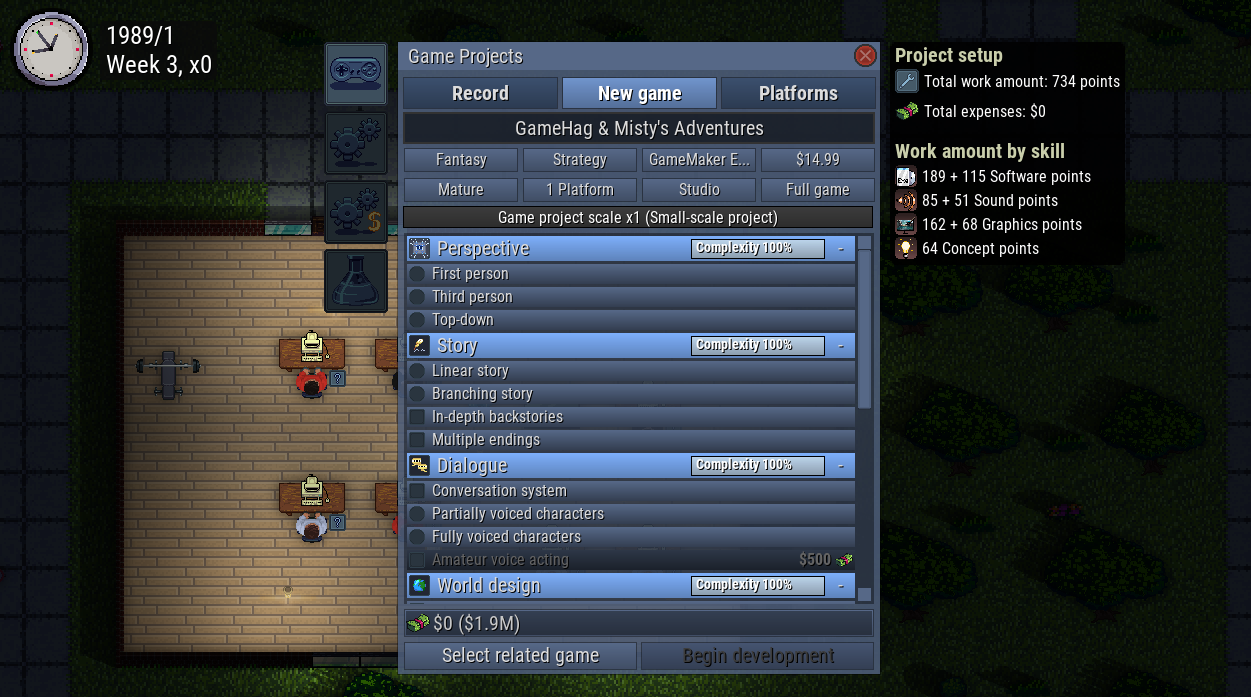
The basic goal of the game is to develop games and create a strong team of employees. To create a game, you’ll first need to get a Game Engine. You can either buy or develop your own Game Engine. After developing your Game Engine, you can even sell it to gain some extra cash!
How advanced your Game Engine and what platforms (PC, Consoles, etc.) it supports dictates how advanced your game can be and what platforms you can develop your game on.
You can control pretty much every aspect of a game. You can set its price, its target audiences, and even its title. Note that the theme and genre of the game and how well they combine with each other, as well if any one of them is trending or not, will impact the amount of sales you will get. Later in the game, you can even have a sub-genre for your game.
There are 3 primary stages of a game’s development cycle: the Concept stage, Development Stage, and Polishing Stage. You can release a game after completing only the first 2 stages, but it’s highly recommended to complete the polishing stage. At some point, you have to announce a game and then advertise it (which is quite expensive), which is critical to a game’s success.
After completing a game, you can also release a sequel or an expansion pack to the game. Creating a good game will also add to the reputation of the company.
There are also rivals you have to worry about in this game. Both you and your rival have to ability to steal employees from each other’s companies, as well as writing slanderous articles about each other. If you are caught writing a slanderous article, your reputation will lower and you can even be taken to court.
There are lots of other aspects to this game I would love to talk about, but that would make this article even longer than it is already. Happy virtual game developing!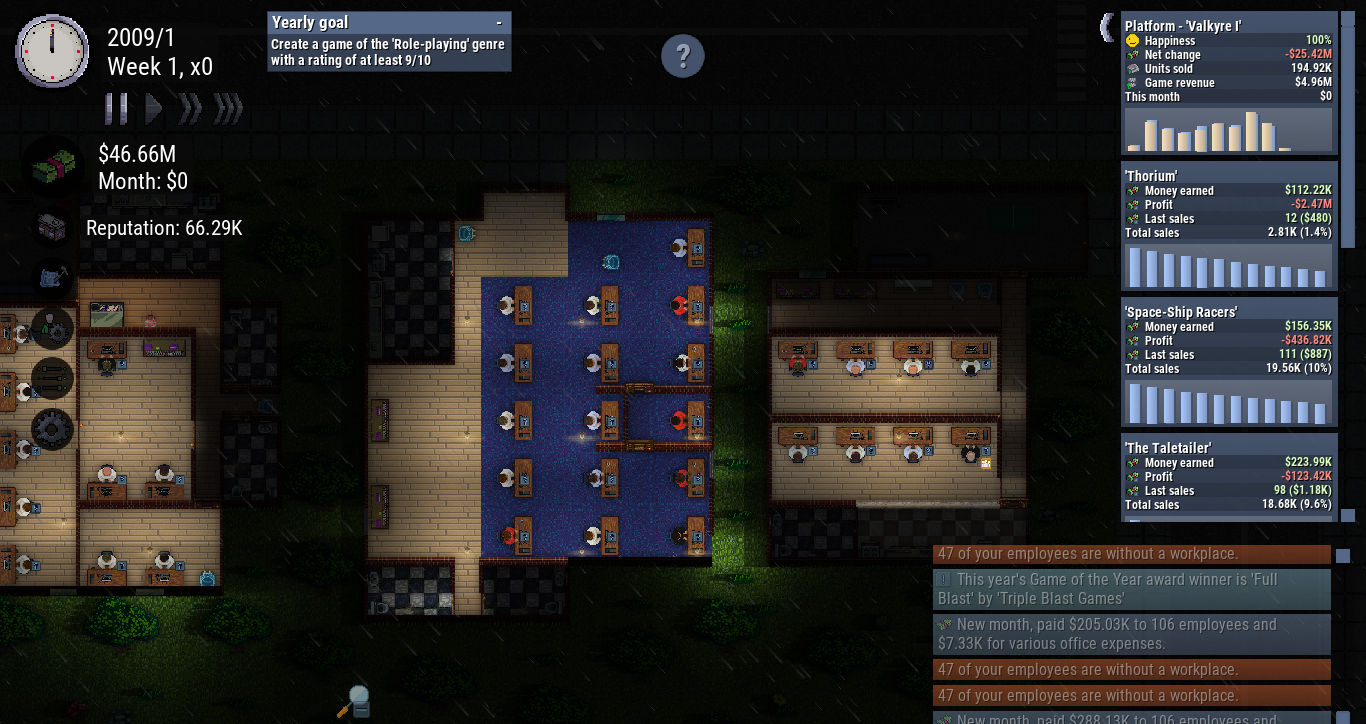

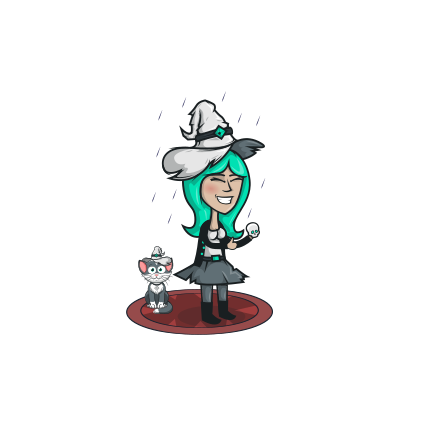




educational
solid effort this
Good games sürükleyici eğlenceli oyun makalede ayrıntılı
Love it
Good article.
Not bad
Very cool,easy to reading
great
you can't be able to stop playing
Nice atricle good job men or women